Driving in Spain - Discover Hidden Gems by Car

The content on this page includes affiliate links. While clicking on these links won't cost you anything extra, we may earn a modest commission from any purchases you make.
We travelled to Alicante which is a charming coastal city in the southeastern region of Spain in the Valencian Community. With many beautiful beaches, natural parks, and scenic countryside destinations, it is no wonder that many tourists flock to this city every year. While there are several modes of transportation available in Spain, driving is by far the most practical way to explore the surrounding areas. Not only does it provide freedom and flexibility, but it also allows you to venture off the beaten path and discover hidden gems that are not easily accessible by public transport. In this article, we will share practical driving tips for Spain, especially for the Valencia area. Read the article and know what to expect while driving in Spain.
Covered in the Article
Spain
Spain is a vibrant and diverse country located in southwestern Europe, known for its rich history, culture, and cuisine. Its world-renowned cities such as Alicante attract millions of tourists each year. Whether you're interested in history, food, or just enjoying the views, Spain has something for everyone.
We visited Alicante on the eastern coast of Spain in December. Even though it was wintertime, it was still moderately nice weather. However, the sea was not warm enough for swimming. Alicante had much to see inside the old town and, but the freedom of exploring areas nearby by car gave us more.
Alicante
Alicante is a vibrant city located on the eastern coast of Spain, in the province of Valencia. Known for its beautiful beaches, rich history, and lively culture, Alicante attracts visitors from all over the world. The city is situated on the shores of the Mediterranean Sea and enjoys a warm, sunny climate throughout the year, making it a perfect destination for outdoor activities.

Driving in a new country can be daunting, especially if you're unaware of local traffic laws and regulations. In this guide, we give helpful tips for driving in Spain based on our driving experiences.
Roads
Valencia is known for its picturesque coastline. It is home to some of the most impressive roads in Spain. The roads are well-maintained and offer breathtaking views of the surrounding countryside.
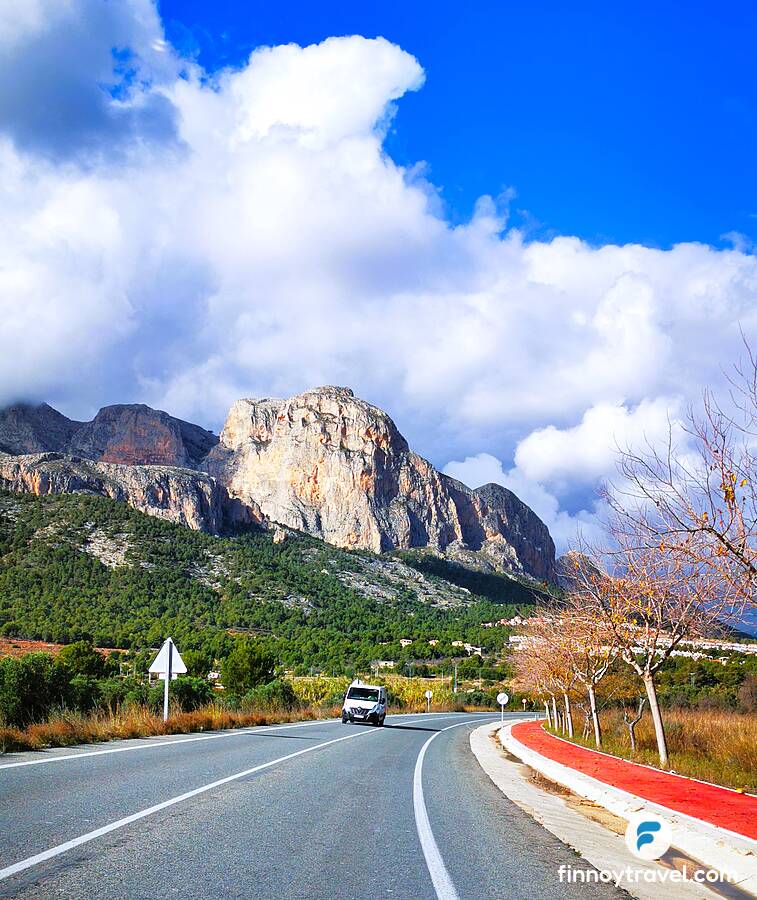
We noticed that driving in Valencia countryside provided an unforgettable driving experience, offering stunning views of the region's natural beauty and cultural heritage. Because the roads were in good condition, driving on them was a pleasure.
The roads in the Alicante centre get easily congested, and a parking place can be difficult to find.
Understanding Spanish Traffic Laws and Regulations
Driving in Spain is a rewarding experience but you must familiarize yourself with the local driving culture and traffic laws to avoid any mishaps.
License
To drive in Spain, you need a license from an EU country. Licenses from other countries may be accepted if they have an appropriate translation to English or Spanish. However, we advise you to have an International Driving Permit (IDP) if you hold a driving license from a non-EU country.
Right-hand Driving
Spain follows the right-hand driving system, which means driving on the right side of the road. You pass other cars from the left.
Priority Rules
Like elsewhere in continental Europe, you must give way for cars from the right. If there is a STOP sign, you must give way to all other cars. Cars inside roundabouts have priority over the entering cars.

STOP signs are common in Spain.
Speed Limits
The speed limits vary depending on the type of road and vehicle. For single-lane rural roads, the speed limit is 90 km/h. The maximum speed limit on standard motorways is 120 km/h for cars and motorbikes.
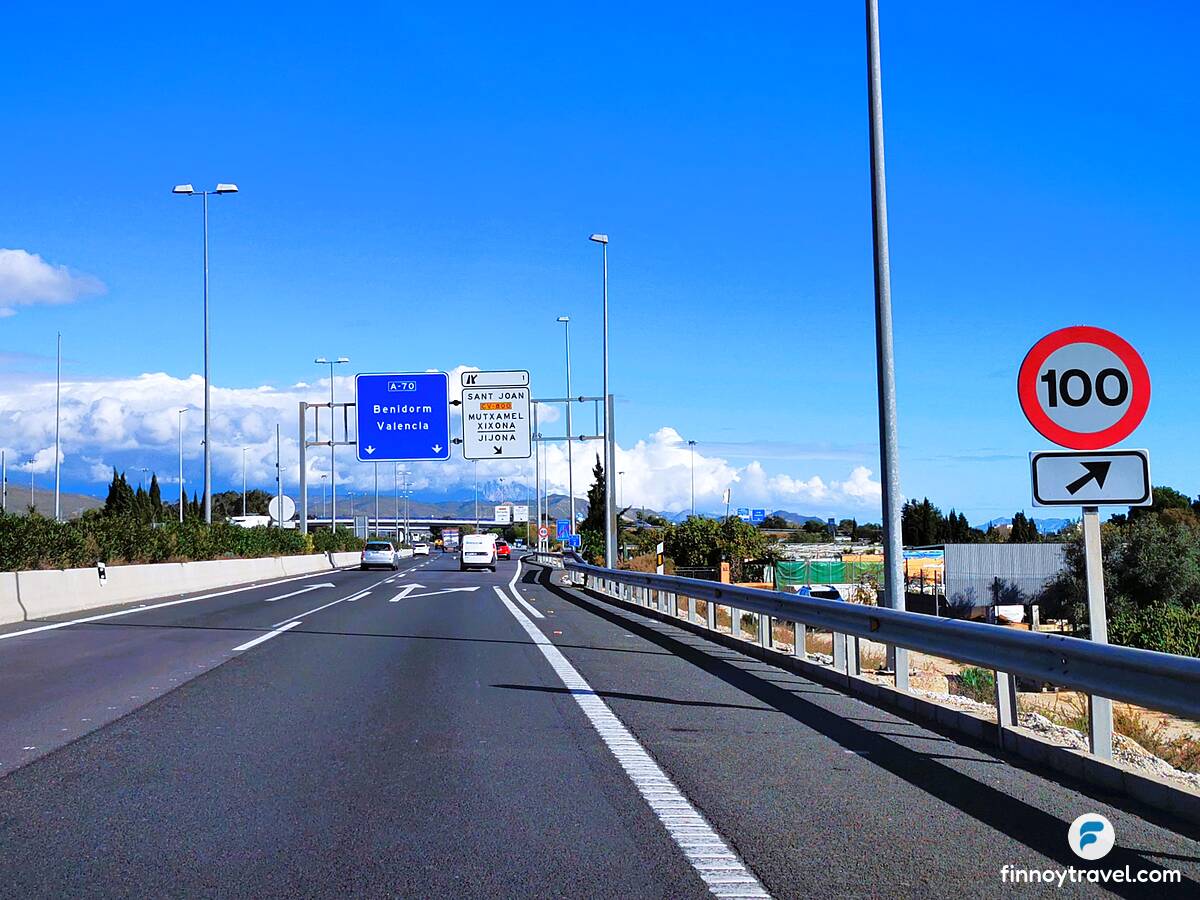
Within city boundaries, the speed limit is 50 km/h on urban roads with two lanes per direction and 30 km/h on urban roads with one lane per direction. Outside of city boundaries, the speed limit ranges from 70-100 km/h. On highways, the speed limit ranges from 90-120 km/h.
Always follow speed limit signs to know the active speed limit.


Alcohol
Spain has a zero-tolerance policy for drunk driving. The legal blood alcohol content (BAC) limit is 0.5 per mil.
Other Rules
The driving rules in Spain are similar to the other countries in continental Europe. We would like to emphasise the following details:
- Wearing seatbelts is mandatory for both drivers and passengers.
- Children under 12 must sit in the back seat and use a child safety seat.
- Using a mobile phone while driving is prohibited.
- It's compulsory to carry a reflective vest, warning triangle, and spare tire in your car. If you hire a car, make sure the car has this equipment.
- The use of radar detectors is prohibited.
Practical Tips for Driving in Spain and Alicante
Road Tolls
Motorways in Spain have road tolls. We noticed that ourselves when driving from Benidorm to Alicante. We had to pay 7 euros for a short hop on a motorway. The motorway was in excellent condition but we could have saved money by choosing a regular highway with a slower speed limit.
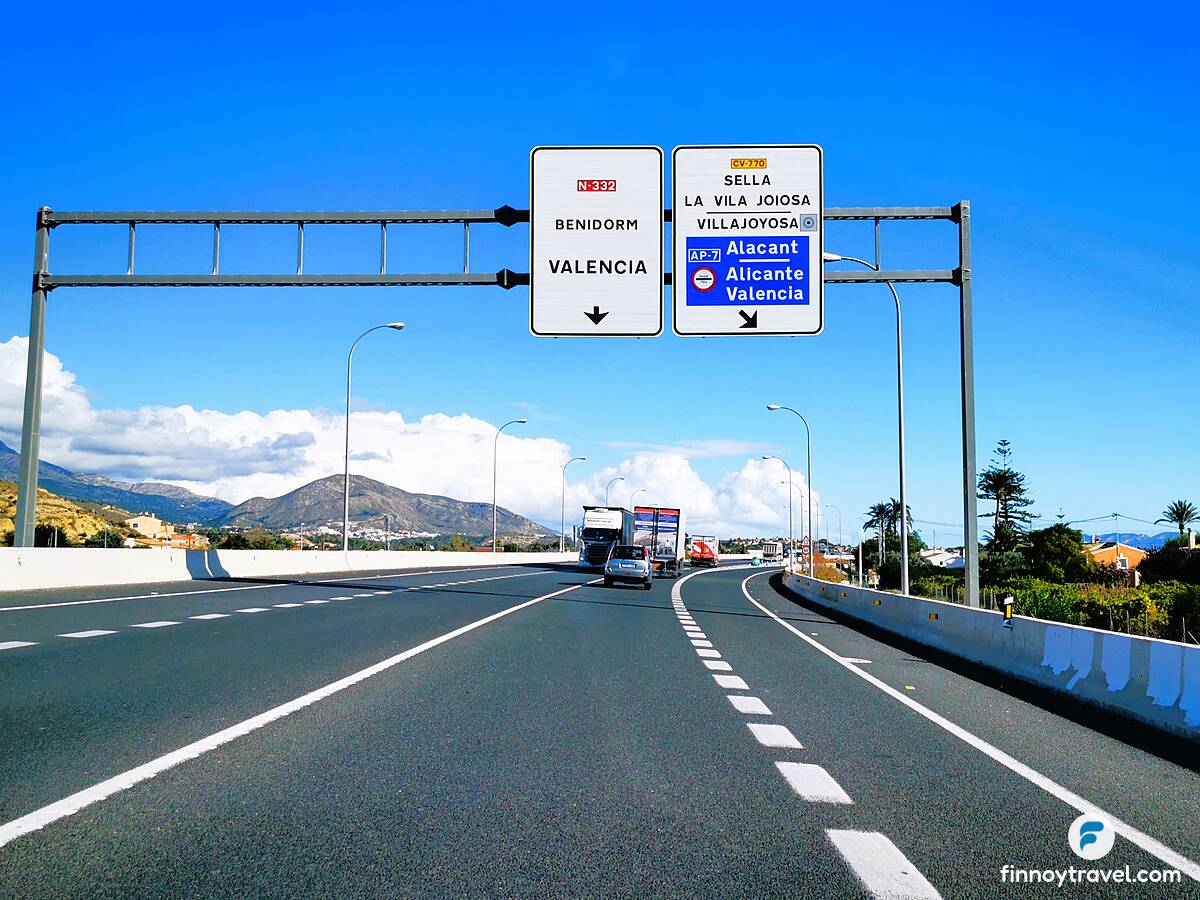
Payment for the toll road works by collecting a ticket and paying at the exit. It is possible to pay with a credit card. Most tolls in Spain have manned booths where you can speak to an employee and pay for the toll by cash too.
Roundabouts
Roundabouts are common in Spain. You should always give way to the vehicles already on the roundabout. Many of the roundabouts have two lanes. It is recommended to use the left lane if you are continuing inside the roundabout and the right lane only when you are exiting. Remember to signal the exit.

Parking
To pay for parking in Alicante in other cities of Spain, you can use the parking meter which accepts both cash and credit cards. The parking spaces are marked with a white letter P on a blue background, and the time for payment is indicated on the signs. Once you have made the payment, the parking meter will provide a ticket that needs to be placed on the dashboard. It's important to display the ticket as fines are given if it's not displayed, and it's cheaper to pay them immediately.
The cost of parking in Alicante varies based on the proximity of public places and ranges from 0.30 cents for 30 minutes to 1.80 euros for 120 minutes. It's worth noting that municipal parking is cheaper than private parking and offers daily weekly, or longer-duration parking. For longer stays, it's advised to park in one of the car parks in the city centre, with parking rates varying from €1.20 to €2.00 per hour and a daily maximum of €11.00 to €24.00 depending on the location.
Parking in the countryside is often free. Pay attention to traffic signs to avoid fines.
Driving Culture in Spain
Understanding the local driving culture and etiquette is crucial when driving in a foreign country.
Spanish drivers are sometimes known to be aggressive, so it's essential to stay calm and avoid engaging in aggressive driving. According to our experience, drivers in Spain follow traffic rules well but traffic is more fast-paced than in northern Europe.
Dealing with Emergencies and Breakdowns
In case of an emergency or breakdown, it is important to stay calm. You must pull over to a safe location and turn the hazard lights on. If you're involved in a serious accident, you need to call 112 to get immediate help. It's essential to have a basic understanding of Spanish phrases to communicate with the locals in an emergency.
Always call the police if involved in an accident with a hire car. Otherwise, the insurance may not cover the costs.
Tips for Hiring a Car
If you're planning to explore Spain by car, hiring a car is the best option. We hired a car from Alamo Car Hire company in the central railway station of Alicante.

To find the cheapest car hire price, we recommend comparing cars and their prices on Discover Cars. Like always, pay attention to the reviews of previous customers. Do not hire a car from a company with a bad reputation.
We advise not hiring a big car if you are going to the mountains. A smaller car is practical and you will also save money. Small cars are cheaper to hire and they consume less fuel.
Almost always, hire cars have an excess part in the insurance. In case of an accident, you need to pay up to 2,000 euros yourself for repair costs. That is why we recommend buying additional insurance with 0 excess to drive with fewer worries. Discover Cars is a place to purchase extra insurance cheaper than from car hire companies.
Who Can Hire a Car in Spain?
Anyone who is at least 18 years old and holds a valid driver's license, ID, and credit card can hire a car in Spain. However, some car rental companies may require renters to be at least 23 years old, and others may require an International Driver's Permit if the driver is a non-EU citizen. Typically, car hire companies require that renters hold their license for at least a year before renting a car.
Accessories
People love to travel to Spain because of its nice climate. Preparing with the right accessories is wise so driving will be more relaxed.
As a sunny destination, be sure to have sunglasses with you. A GPS device, Google Maps or a similar application is helpful for you to navigate between the cities and mountains. Remember to have enough cash because credit cards are not accepted in every place.
Remember that it is compulsory to have a reflective vest, warning triangle, and spare tire in your car. Usually, car hire companies take care that the car is equipped according to the law.

Our Driving Experience in Spain
We drove in the Valencia Region.
Car Hire
We hired a car to explore the beautiful nature around Alicante. We searched for car rental companies on Discover Cars, which is a reliable platform to compare rental prices from different providers. After comparing prices and reading reviews, we found that Alamo offered the best deal and had positive feedback from previous customers. The reservation process was simple, and we were able to book a car online in just a few minutes.
Visiting Guadalest Reservoir
We wanted to see the tall mountains around Alicante and the beautiful Guadalest Reservoir. First, we drove to the north from Alicante on a regular highway and then continued to the east to the mountains. Roads were windy but in good condition. As we made our way through the scenic mountain roads, we were greeted by sunny views of the lush valleys and towering peaks surrounding us. The air was crisp and fresh, and the beauty of the natural landscape was truly awe-inspiring. Thankfully our visit to Alicante was in the winter so it was not too hot.

As we approached our destination, we caught glimpses of the shimmering turquoise waters of the reservoir, nestled in the heart of the valley. The sight was mesmerizing, and we couldn't wait to get closer and take in the beauty of the natural wonder. As the sun of shining, it was perfect to unwind under the warm December sunshine.
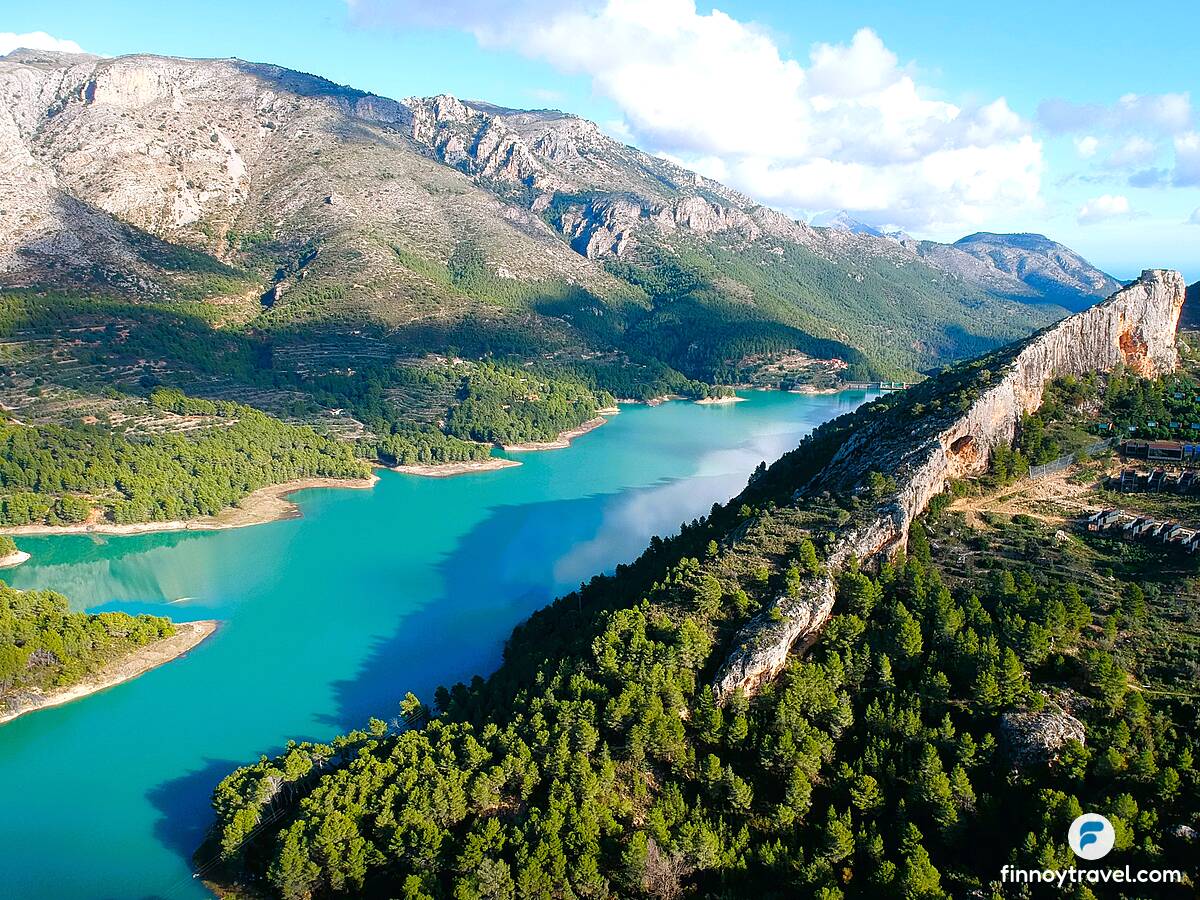
Parking was free but the car got dirty because the parking area was so muddy.
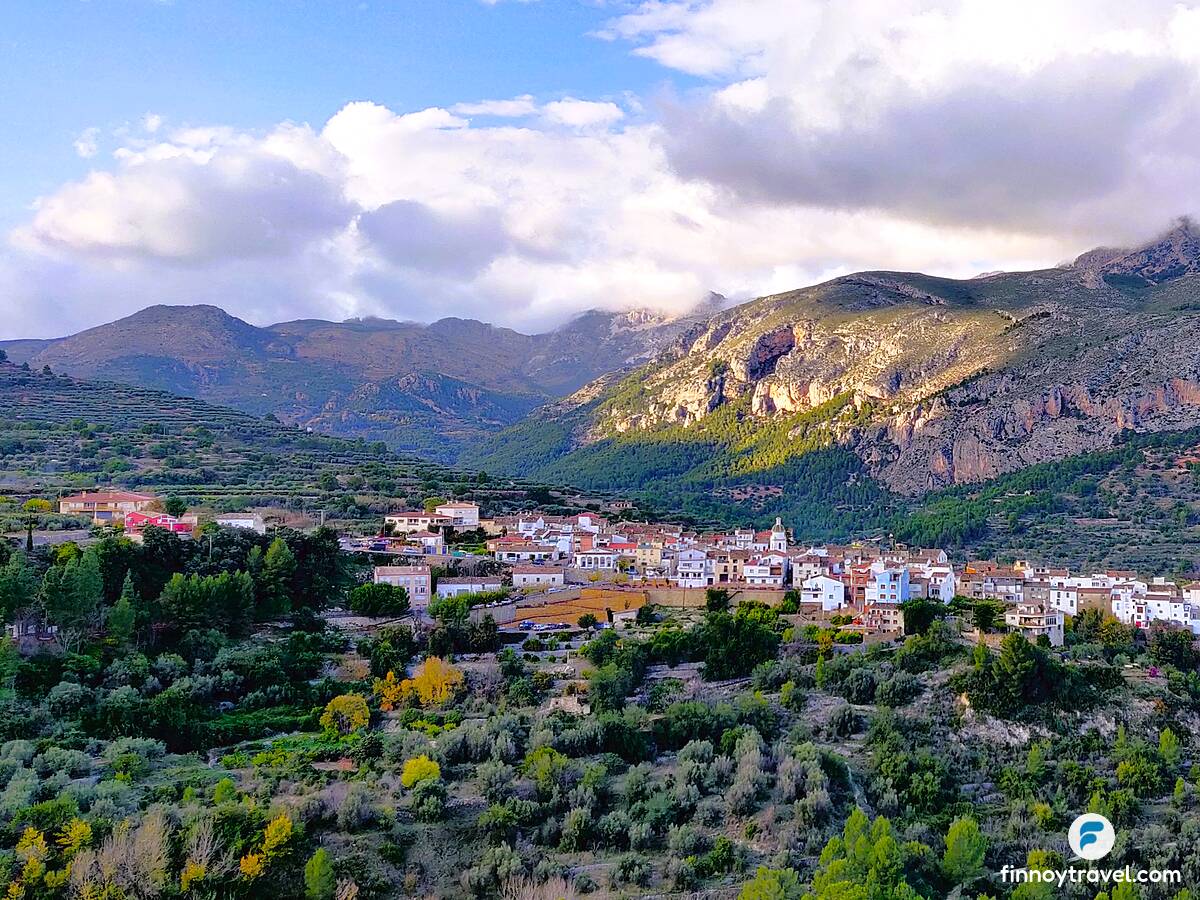
Dinner at Benidorm
After spending a peaceful day by the turquoise waters of Guadalest Reservoir, we decided to head to Benidorm for dinner. Benidorm is a popular tourist destination known for its skyscrapers. The lively city was buzzing with the Christmas spirit, and the streets were adorned with colourful lights and decorations. After enjoying a sumptuous Spanish dinner, we strolled through the city, enjoying the festive atmosphere. The city was full of Christmas spirit.

Late in the evening, we drove back to our accommodations in Alicante. We accidentally entered a motorway and had to pay 7 euros toll for a short drive. But the road was in excellent condition.
Benidorm is a typical but still different Spanish tourist destination. While it does not offer anything else special than the skyscrapers, it has all the services travellers are expecting.
Common Questions
- Is it difficult to drive in Spain?
- Driving outside the cities is relaxed, but driving in the big cities may become challenging for inexperienced drivers.
- Are the mountain roads near Alicante difficult to drive?
- Not really. Even though the roads are windy, they are moderately easy to drive.
- Are the roads in Spain in good condition?
- Yes, they are. Especially, paid motorways are in excellent condition.
- Are there road tolls in Spain?
- Yes, there are. Some motorways have road tolls.
- Is an EU driving license valid in Spain?
- Yes, it is.
- Where to hire a car in Alicante?
- We recommend comparing car hire prices on Discover Cars.
- What to see near Alicante?
- We recommend heading to Guadalest Reservoir and Benidorm.
Bottom Line
Driving in Spain can be an exhilarating experience, but it's crucial to follow the traffic laws and regulations and drive safely and confidently. We noticed that the roads were in good condition and traffic was peaceful. Driving inside Alicante was the most challenging part because the city centre gets easily congested.
Winter is the best season to explore nature destinations near Alicante. The weather is not too hot and the mountain roads are peaceful. Usually, the weather beyond summer is still pleasant and often sunny. In short, travelling out of season means lower prices and you will enjoy fewer crowds. There are slight chances that roads get frozen in the winter and then we recommend not driving.
Have you driven in Spain? Comment on your driving experiences below.



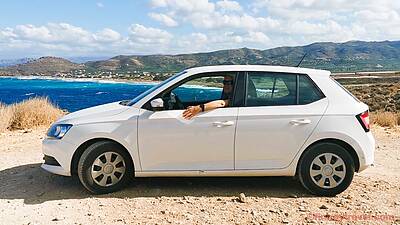

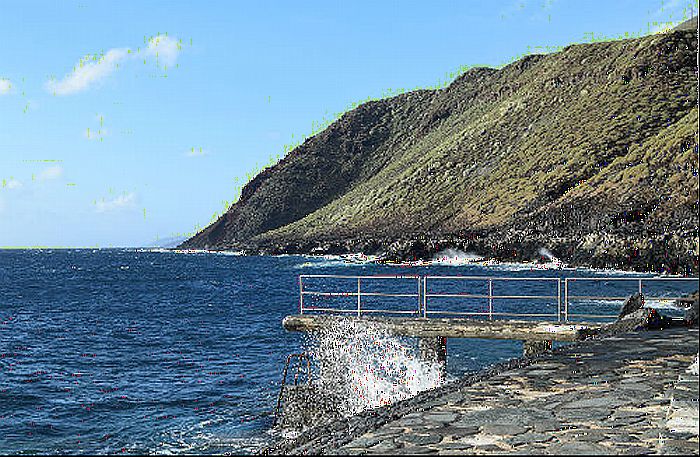
Add Comment
Comments